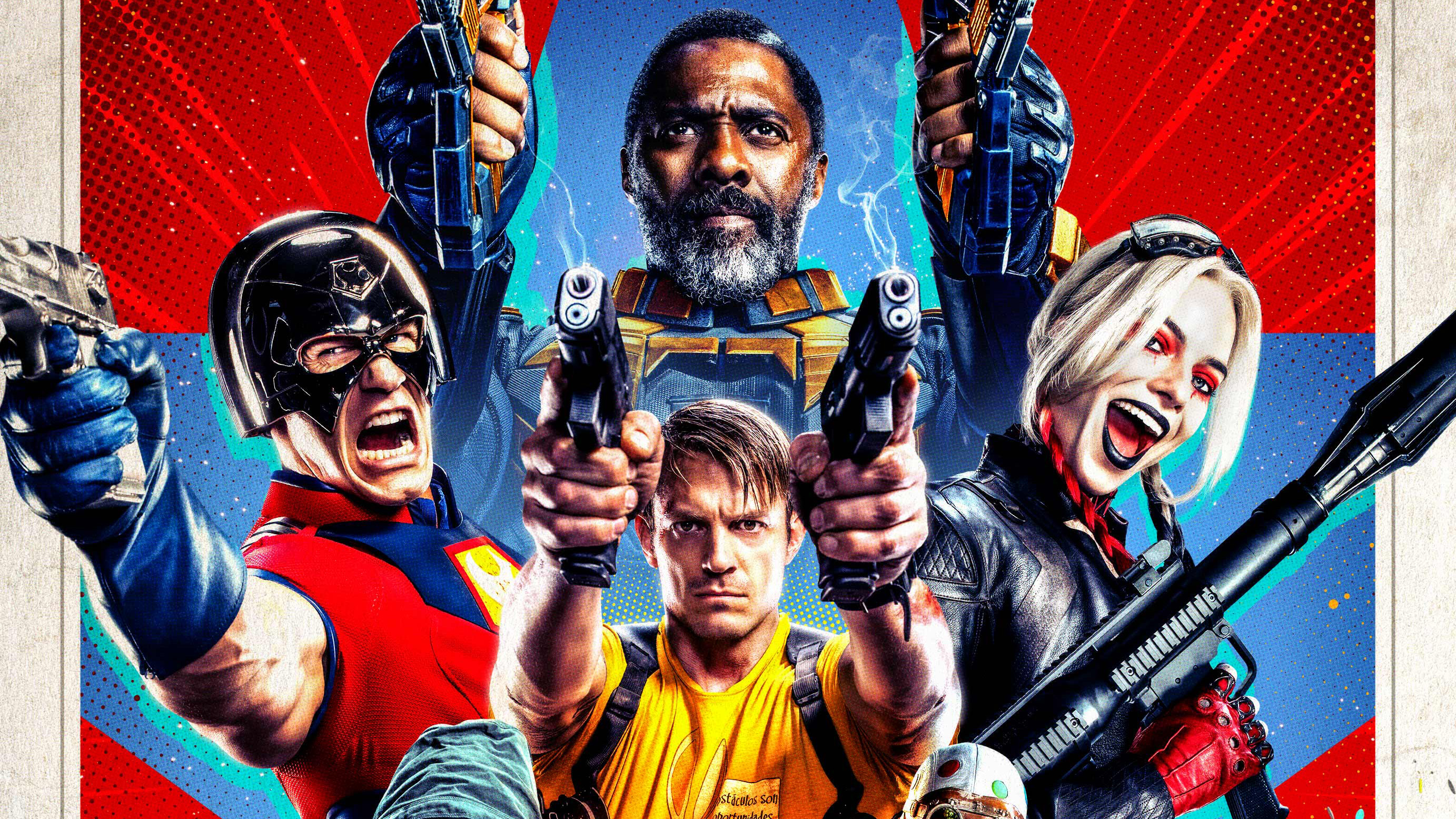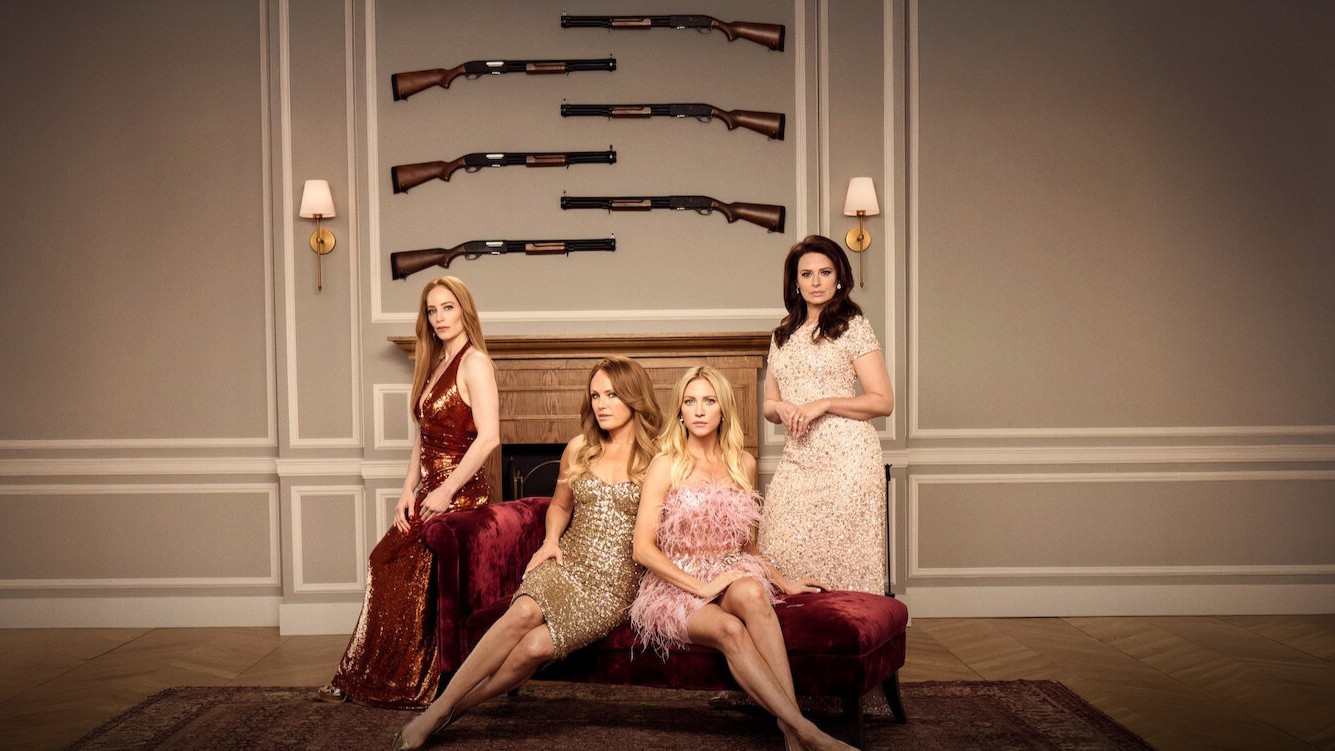How James Gunn redefined the two biggest superhero franchises on the planet
As both a Marvel and DC director, The Suicide Squad's James Gunn has helped to redefine two of the biggest superhero franchises of the planet.

The Suicide Squad opens this week in American theaters and Warner Bros. has high hoped for this new addition to their increasingly sprawling DC cinematic universe. While the film is technically a sequel to 2016's Suicide Squad (note the lack of "the" in the title), it's been widely accepted by audiences and critics alike that this is more a reboot than anything else. Many of the first movie's character have returned, alongside some new faces, and the basic set-up of DC's semi-heroic team remains, but the changes are also evident. This movie is more raucous, pulpy in energy, and drenched in style, violence, and pure unadulterated fun. With a surprising 96% rating on Rotten Tomatoes, it's certainly staked out its claim as one of DC's most critically beloved titles and a noted contrast from the absolute roasting that Suicide Squad received upon release. This shift signals a few things for Warner Bros., including a positive step forward for the studio's search for even ground with its oft-divisive franchise. It’s the successful revival of a property that, only five years prior, many thought was dead on arrival following rushed rewrites and reshoots and a notoriously messy editing cycle that ended with director David Ayer all but disowning the final product. Most notably, however, it’s another victory for one James Gunn.
After a number of directors were considered to take over Ayer with a Suicide Squad sequel, the job eventually fell into the hands of Guardians of the Galaxy's James Gunn. This was something of a surprise since Gunn had been unceremoniously fired by Disney following a bad faith outrage campaign led by conservative talking heads regarding some old controversial tweets he'd posted. This moment in Marvel Studios' history is a low point, a decision seemingly made in haste without any of the company's top dogs digging into the deeper context of the attacks Gunn was facing at the time. They also seemed to regret the choice pretty quickly, and one day after the announcement of his new DC movie was made, Disney reconnected with Gunn to rectify the situation. He was reinstated as the Guardians of the Galaxy Vol. 3 director soon thereafter. An alt-right harassment campaign to lose a man his job ended with him having two jobs.
Even if this furor hadn’t occurred, it’s not difficult to see why Warner Bros. would want to get Gunn on their side. Apart from the hasty reshoots and sloppy neon overlay trying to remold Ayer’s Suicide Squad into a Guardians of the Galaxy rip-off, it was evident that Gunn’s particular approach to high-concept franchise filmmaking was exactly what they needed. After all, he had done wonders for Marvel.
When Gunn was hired by Marvel to direct one of the lower-tier comic creations for the big screen, he seemed to be a curious choice. He began his filmmaking career at Troma Entertainment, the notorious home of bad-taste and giddily inventive horror cinema that brought the world the likes of The Toxic Avenger and Cannibal! The Musical. His first credit was co-writing Tromeo and Juliet, a very loose Shakespeare adaptation featuring graphic sex, incest, Juliet transforming into a cow monster with a three-foot penis, and narration by Lemmy of Motörhead. He moved onto more family-friendly fare by writing the screenplay for the 2002 live-action Scooby Doo movie (and when you know that, rewatching that film becomes a way weirder experience), then Zack Snyder's remake of Dawn of the Dead. He didn't make his directorial debut until 2006 with Slither, a very gross and extremely funny horror comedy that pays homage to his Troma roots. He even made a superhero film in the form of 2010's Super, although his one is far bleaker and nastier than anything Marvel would release.
Gunn's work is gonzo, typically uninterested in pleasing the masses. There's no such thing as too much bad taste in early James Gunn's work, even in the PG stuff like Scooby Doo, once you know where to look for it. The idea that he would be given the reins to a major IP by a notoriously well-oiled machine like Marvel seemed bonkers. It ended up being one of the company’s savviest decisions.
Guardians of the Galaxy is somewhat overstuffed - an understandable problem given the need to establish the lofty foundations of Marvel's more cosmic realms - but it's also a fully realized story that manages to be entertaining as well as earnest. Even in its moments of more sardonic humor, it retains its heart. Before Taika Waititi brought retro flair to the Thor series, Gunn filled Guardians of the Galaxy with '70s tunes and the kind of banter and whip smart action set-pieces that wouldn't seem out of place in a Spielberg blockbuster. As the MCU moved towards a weightier thematic perspective with films like Captain America: The Winter Soldier, there was something refreshingly irreverent about Guardians of the Galaxy. Gunn also didn’t shy away from the comics’ weirder elements, like Rocket Raccoon, who so easily could have been written out as a character too difficult to pull off seriously. He ends up being one of the heftier emotional forces of the series.
Gunn seriously stepped up his game with Guardians of the Galaxy Vol. 2. The stakes were appropriately higher and the joke count increased but what made the film was its deeply emotional familial drama between Peter "Star Lord" Quill, his father Ego, and his sort-of adopted father Yondu. This intensely human subplot that happened to center on a bunch of aliens revealed the surprising thematic depths that Gunn could plunder, all under the guise of fizzy cheek. The aesthetic may have been neon drenched and merchandise-friendly (baby Groot!) but what lingered the longest after the end credits was the sight of Peter Quill finally being able to reconcile himself to the difficult but loving relationship with the man he called “dad” for most of his life.
The latest updates, reviews and unmissable series to watch and more!
With two films, Gunn helped to establish a new direction for Marvel’s wider narrative but also realigned their stylistic aim. You could be fun and serious and weird. A blockbuster could retain the gonzo freedom of low-budget genre shlock. You could get people to cry over a talking raccoon and a tree-creature with one phrase. Comic book movies spent a lot of the past 20 years or so trying to avoid silliness and James Gunn pushed it back into the spotlight with the seriousness it deserved.
And now he’s helping to shift DC’s perspective, albeit in a more frantic manner. It helps that DC afforded him a level of creative control they didn’t seem to give David Ayer. They allowed him to make a hard R-rated war-like action movie (which, frankly, they should have let Ayer do as well), and they gave him free rein over a roster of some of the more ludicrous characters in their canon. The end result is a film that, like Guardians of the Galaxy, is hugely fun and undeniably humane, even at its most ultraviolent. Gunn has a soft spot for the losers and knows that even the most one-note creations can contain hidden depths, whether they're a talking raccoon or a polka-dot themed villain. Crucially, The Suicide Squad stands out as a unique entity not only for DC but the superhero movie genre as a whole in 2021. This isn’t DC trying to copy Marvel or offer the antithesis of that brand in ways that aren’t necessarily appealing to mainstream audiences. It’s just a good movie that stands on its own two feet, the obvious creation of its director with no meddling middlemen or editorial slicing.
The DC universe has changed rapidly over the course of a mere decade, and it will continue to do so, while the Marvel saga will stick to its iron-clad plan and builds its way further into the stars. James Gunn can rest easy knowing that he’s left his indelible mark on both superhero franchises and that two of the undisputed giants of 21st century cinema owes him a favor or two. Guardians of the Galaxy Vol. 3 will certainly be a highly anticipated conclusion to the trilogy.
Kayleigh is a pop culture writer and critic based in Dundee, Scotland. Her work can be found on Pajiba, IGN, Uproxx, RogerEbert.com, SlashFilm, and WhatToWatch, among other places. She's also the creator of the newsletter The Gossip Reading Club.





